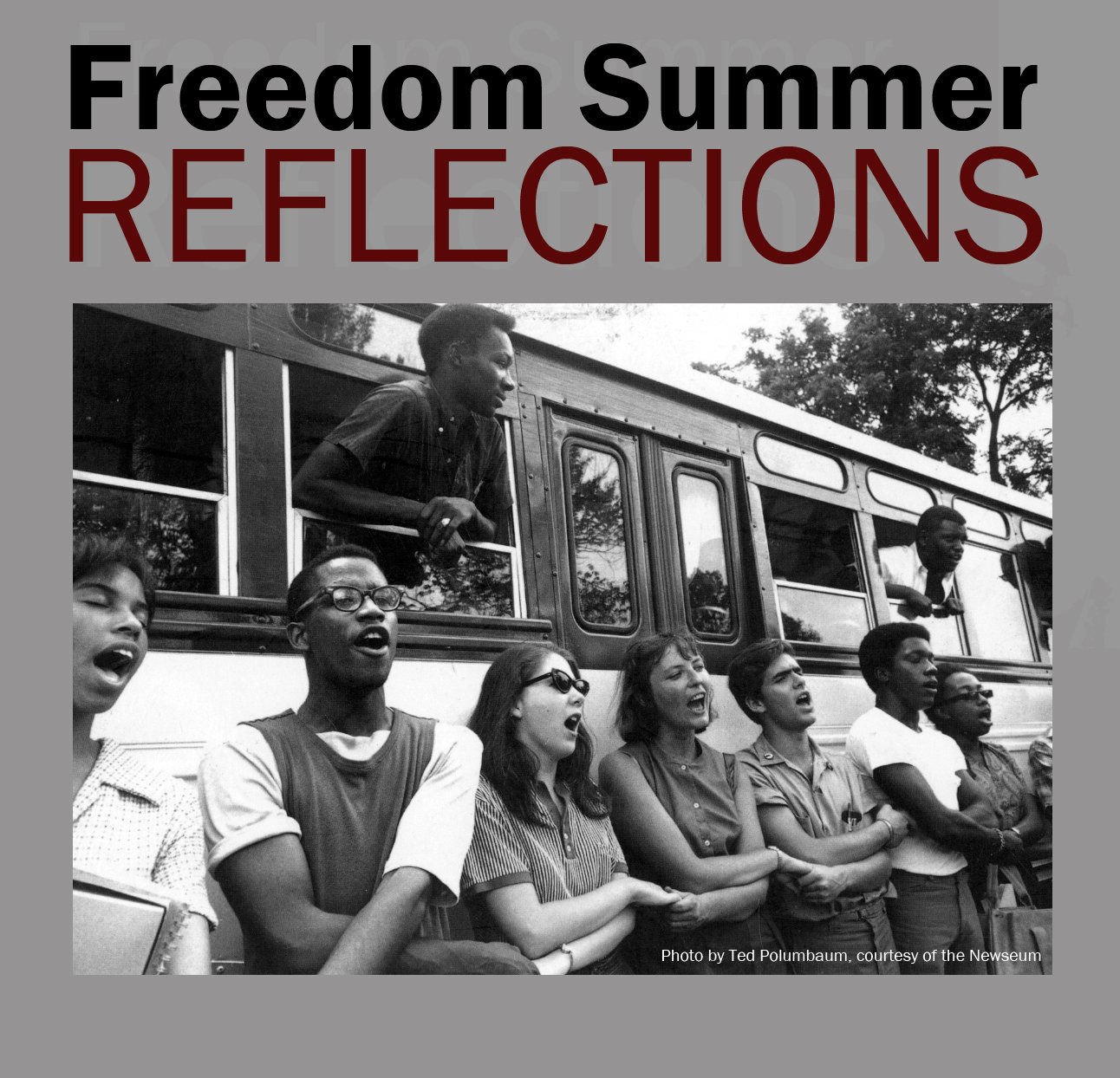
Photo by Ted Polumbaum, courtesy of the Newseum.
What was Freedom Summer?
In the summer of 1964, thousands of civil rights activists went to Mississippi and other Southern states to help African Americans register to vote. At the time, only 6.7 percent of African Americans in Mississippi were registered to vote, the lowest rate in the country. Most of the activists were young white college students from the North.
Many suffered during that summer. Three young volunteers — James Earl Chaney, Andrew Goodman and Michael “Mickey” Schwerner — were murdered, churches, homes and businesses were burned. Activists were beaten by white mobs or police. At the same time, black and white Methodists and members of the Evangelical United Brethren Church were working alongside others to keep the efforts non-violent.
However, Freedom Summer left a positive legacy. The Civil Rights Act of 1964 and the Voting Rights Act of 1965 passed in part because the country had been educated by Freedom Summer.
Personal memories
These are reflections written by people who were in Mississippi that summer or elsewhere in the world watching and praying. It also contains reflections from those too young to participate but who feel blessed and influenced by the struggles of their Christian brothers and sisters during that summer 50 years ago.
Like what you're reading? Support the ministry of UM News! Your support ensures the latest denominational news, dynamic stories and informative articles will continue to connect our global community. Make a tax-deductible donation at ResourceUMC.org/GiveUMCom.



